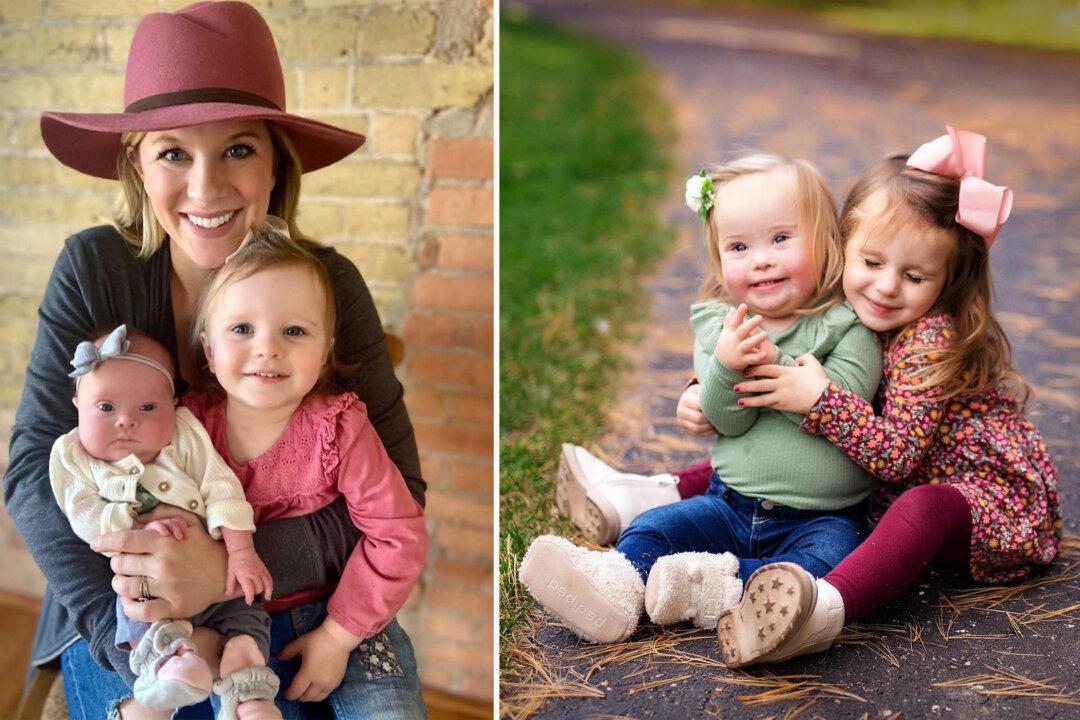A mom who worried that her second baby’s Down syndrome diagnosis would shatter her older child’s chances at bonding with her sister was quickly proved wrong when the baby was born. It was the mom’s preconceptions about Down syndrome that were shattered, and her girls share a love like no other.
Nikki Geib, 34, is a content creator and stay-at-home mom living in Madison, Wisconsin. She is married to Morgan Geib, 35, the business owner of a small manufacturing company, and the couple shares daughters Georgi, 4, and Millie, 2.





